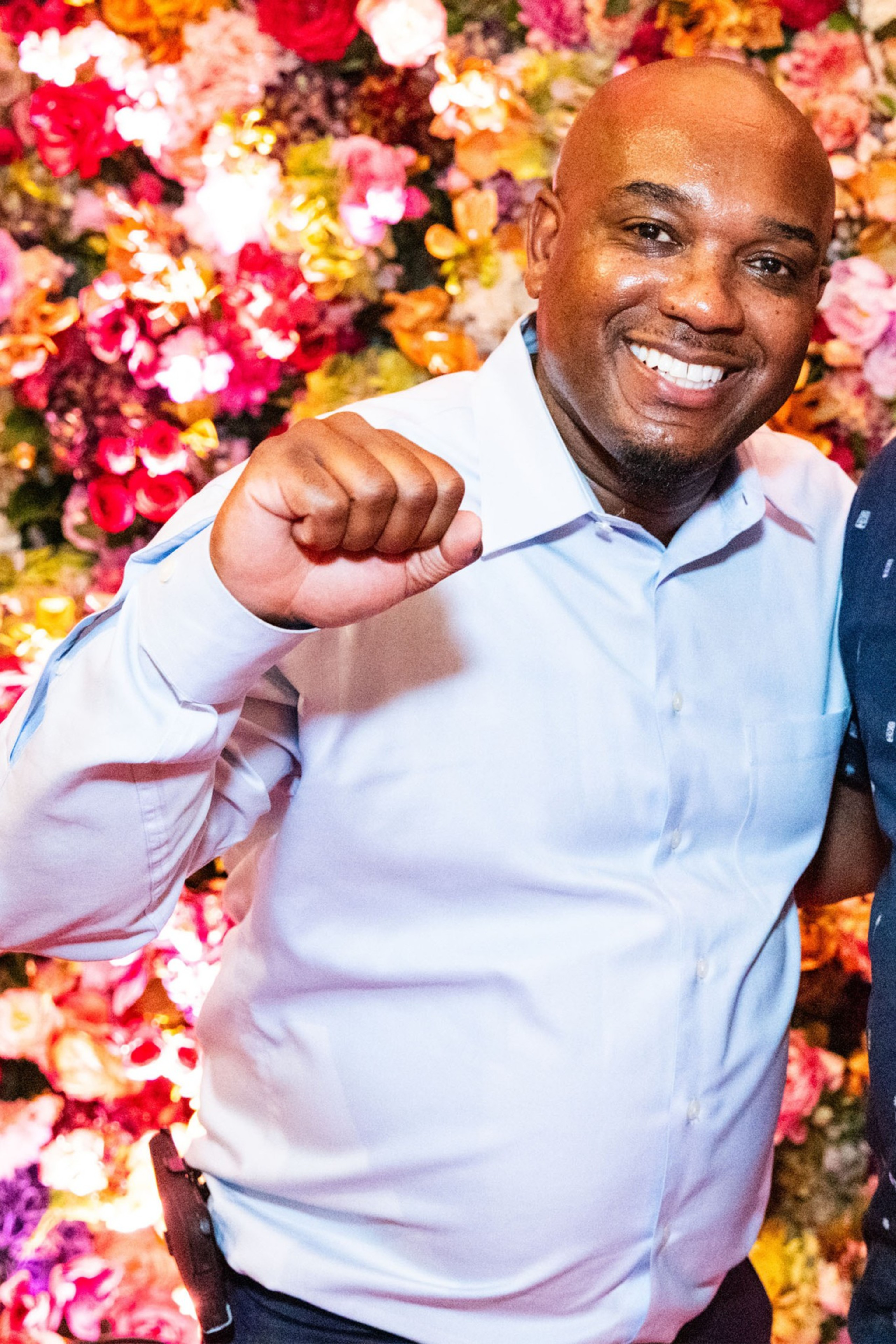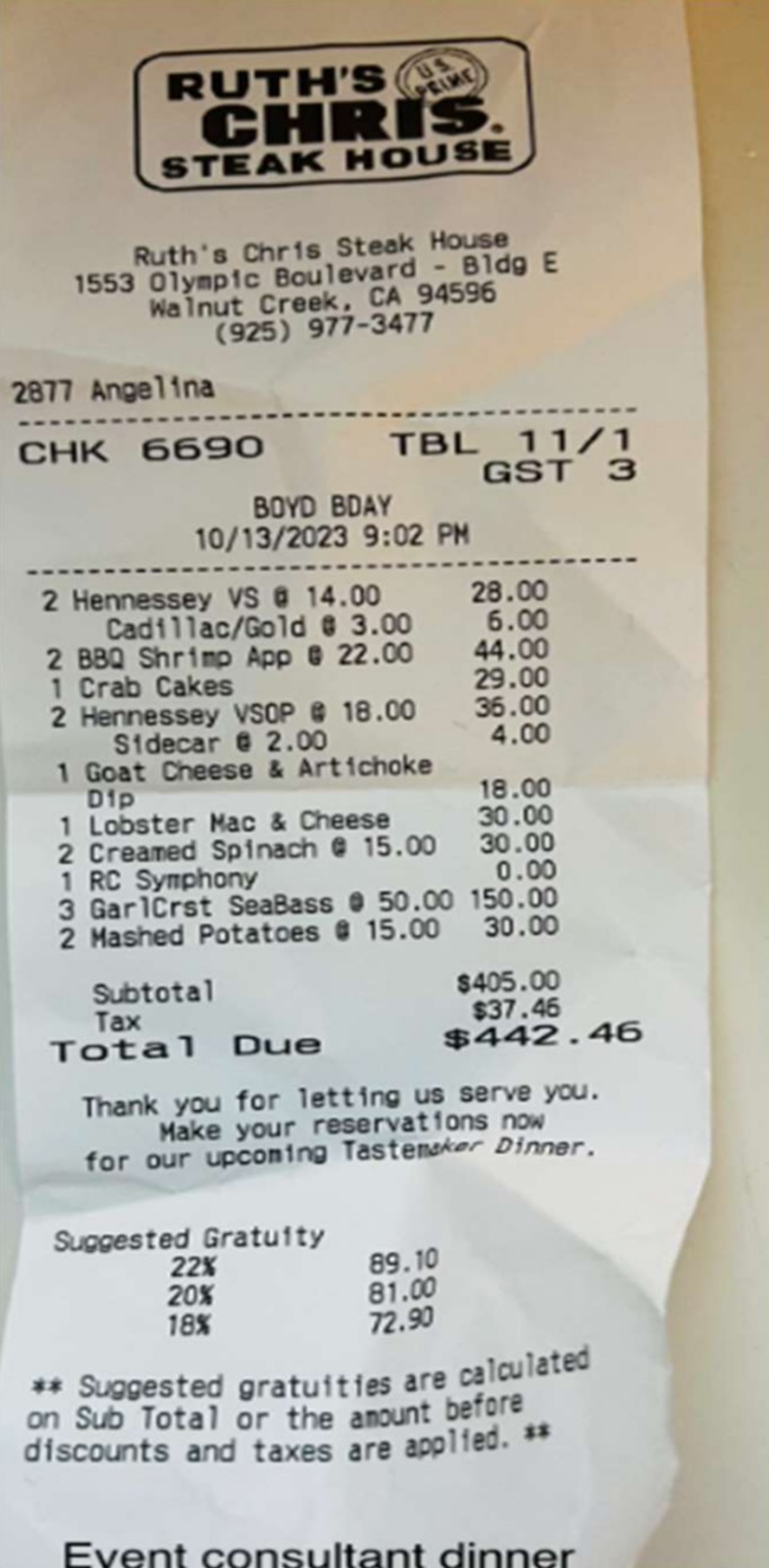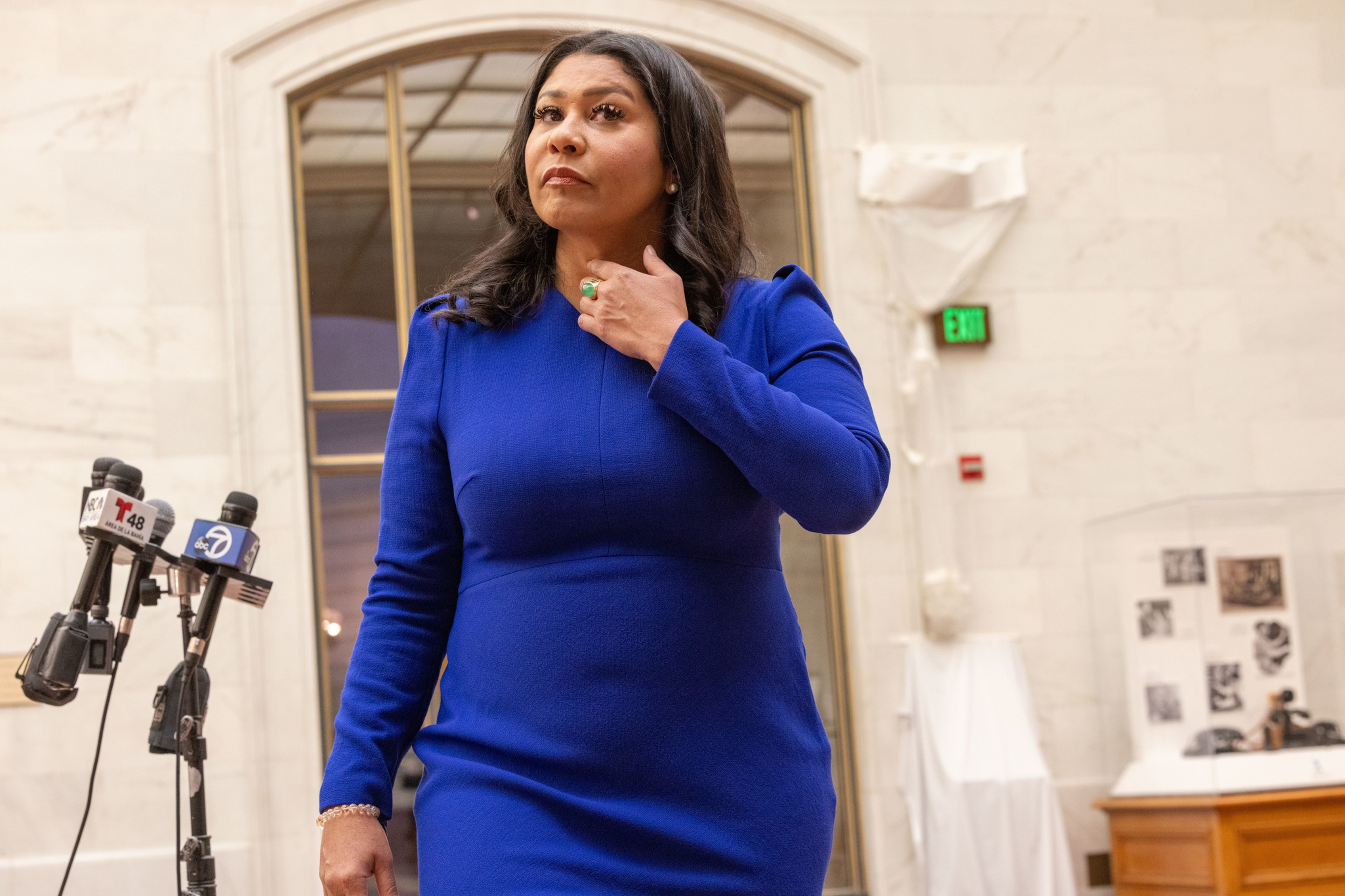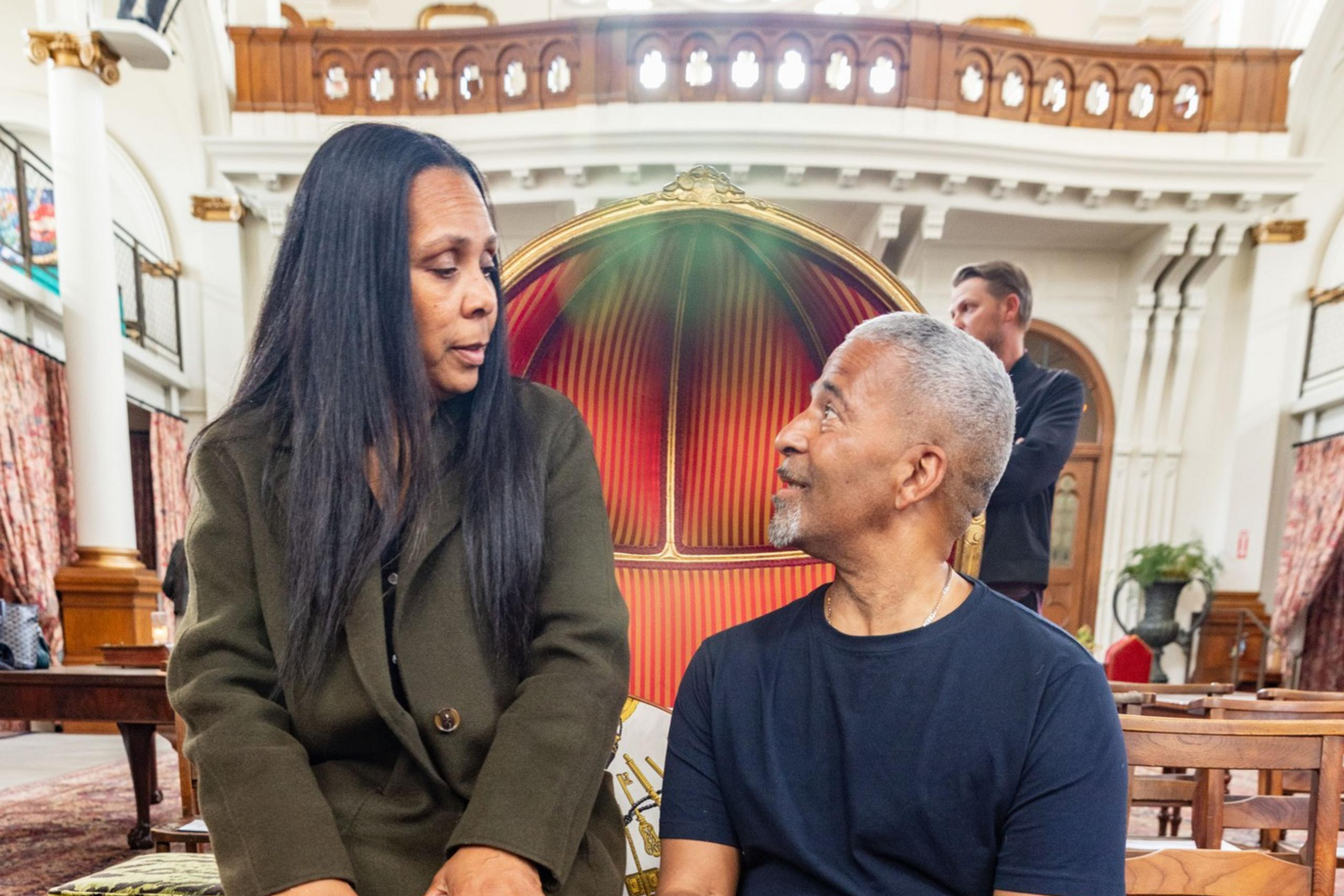A nonprofit tied to an evolving City Hall scandal failed to inform state officials about its close ties to a former San Francisco department head and sponsored a separate organization that spent money on steakhouse dinners, liquor, and first-class flights, The Standard has learned.
James Spingola’s Collective Impact, an organization that has received $7.5 million from Mayor London Breed’s flagship Dream Keeper Initiative, has said since 2021 in nonprofit renewal forms required by the California attorney general’s office that it had no conflicts of interest.
However, records show that Spingola shared a home with the Dream Keeper Initiative’s key decision-maker, Sheryl Davis, since at least 2021. Davis, who resigned last week as head of the city’s Human Rights Commission and personally signed off on $1.5 million in contracts to Spingola’s organization, also did not disclose her relationship with the nonprofit executive to City Hall officials, a Standard investigation found.
“It’s a very big deal,” said Joan Harrington, a nonprofit ethics expert at Santa Clara University, of Collective Impact’s filings with the state. “I don’t think there is a way to answer ‘no’ with what was going on. … That is significant that the staff answered that question in a way that appears to be untruthful.”

Breed said she knew about Davis and Spingola’s relationship but remains committed to the Dream Keeper Initiative, which directs millions of dollars annually to support the city’s underserved Black communities. Board of Supervisors President Aaron Peskin, a candidate in the mayoral race to unseat Breed, has requested hearings about the scandal. Others have called for the FBI to investigate.
After auditing a random sample of transactions from the Human Rights Commission, the city controller’s office concluded in July that Collective Impact “is not properly monitored” by Davis’ department.
In a statement to The Standard, the mayor’s office said the Dream Keeper Initiative is “actively under independent review by the Controller,” and new program spending has been paused.
‘It is very difficult to defend this’
Conceived in 2020 after the murder of George Floyd, Breed and Supervisor Shamann Walton pushed for the Dream Keeper Initiative as a way to boost economic opportunities among the city’s Black community, whose population has dwindled for decades. The city has budgeted nearly $300 million for the program. Advocates say it has increased Black homeownership, helped small businesses, and created opportunities for students at historically Black colleges and universities.
Yet there were signs that some Dream Keeper funds have not been managed effectively. In February, San Francisco moved to bar Dream Keeper recipient J&J Community Resource Center from doing business with the city after officials accused the nonprofit of trying to fraudulently bill some $100,000 in charges, including ineligible expenses like alcohol, cigars, and motorcycle rentals.
The Standard has found that another nonprofit, Both Sides of the Conversation, submitted invoices for Dream Keeper Initiative funds spent on expensive meals, liquor, and travel.
Led by Jon Henry, Both Sides of the Conversation says its mission (opens in new tab) is to “increase mobilization of advancement in Black and Brown communities by providing a safe space for conscious dialogue concerning the needs, systemic barriers, resources, and remedies.” Formed in 2020, the organization has a podcast (opens in new tab) and provides mentorship to juveniles in the justice system.

In its 2021 contract with the city, Both Sides of the Conversation committed to convening “one-on-one conversations” to talk about race, provide a media outlet for local organizations to promote themselves, and host educational workshops with Dream Keeper Initiative organizations.
The Standard obtained invoices from Henry that were addressed to Spingola over a two-month period in fall 2023 as part of Both Sides of the Conversation’s project with the Dream Keeper Initiative called “Narrative Shift (opens in new tab),” which intends to create “storytelling narratives for minority residents in the most underserved and underrepresented communities in San Francisco.”
The city signed a $900,000 contract for the project using a fiscal sponsorship model (opens in new tab), with money flowing from the Dream Keeper Initiative to Collective Impact to Both Sides of the Conversation.
The invoices submitted by Both Sides of the Conversation include:
- $3,443 for first-class flights: a round-trip (opens in new tab) ticket from Chicago to San Francisco, a one-way (opens in new tab) ticket from Chicago to San Francisco, and a flight from San Francisco to Washington, D.C. (opens in new tab)
- $218 for a Blacklane (opens in new tab) “luxury chauffeur service” ride in Washington, D.C. (opens in new tab)
- $281 at San Francisco’s Old Clam House (opens in new tab) for crab cakes, pan-roasted salmon, and wine. Only one person is noted on the receipt.
- $1,420 at Kaliwa (opens in new tab), a Southeast Asian restaurant in Washington, D.C. Tequila, bourbon, and wine account for $108 of the bill.
- $532 at Ruth’s Chris Steakhouse in Walnut Creek for three guests ordering $50 plates of seabass, lobster macaroni and cheese, crab cakes, and barbecued shrimp. The bill includes $74 for cognac. The invoice is labeled as an “event consultant dinner” but the physical receipt (opens in new tab) says “Boyd Birthday.”
- $307 at Chicago-based steakhouse STK (opens in new tab).
- $88 for one person at Afro-Caribbean restaurant Salamander in Washington. The bill includes tequila (opens in new tab).
- $256 for tickets to “Soul Train” (opens in new tab) in San Francisco. A Facebook photo of Henry that was reviewed by The Standard shows he attended the event.
“From an ethical perspective, it is very difficult to defend this,” Santa Clara University’s Harrington said of Henry’s invoices. “Someone has to be responsible for that executive director.”
A spokesperson from the controller’s office, which audits city spending, told The Standard that alcohol purchases are generally not reimbursable, and any exceptions must be approved by a department accountant.

The Standard asked whether the Human Rights Commission made an exception allowing Both Sides of the Conversation to invoice alcohol. The department declined to answer that question or any others regarding the invoices for travel and dining, citing ongoing investigations of the department and its former director.
Business and first-class airfare also are not reimbursable by the city, according to its accounting policies, which allow for economy or coach fare.
When reached for comment, Henry told The Standard, “I don’t need to answer any questions” and hung up after being asked about the restaurant charges. In a Facebook post Saturday, Henry wrote, “We stand united against the Nazi media outlets that perpetuate hatred and political mudslinging targeted at our community and leaders. This coordinated attack on Black people is both real and prevalent, causing our community to suffer even more from marginalization, lack of access, and equity.”
Harrington explained that the fiscal sponsorship model means Collective Impact is likely responsible for overseeing the funding it provides to Both Sides of the Conversation and ensuring it’s spent in responsible ways. Collective Impact also benefited from the arrangement; the city allocated the group nearly $50,000 as a fiscal sponsorship fee to cover the cost of ensuring financial oversight of Both Sides of the Conversation.
Collective Impact under the microscope
Collective Impact’s board members did not respond to a list of questions about its disclosures with the state and Both Sides of the Conversation’s spending. A press inquiry with the California attorney general’s office went unanswered. Spingola, who declined an interview Tuesday when approached by a Standard reporter, is listed as the organization’s executive director.
Tony Brass, the attorney representing Davis, said in a statement to The Standard that the former city department head “has been placed under great scrutiny with many important facts being left out.”
“The parameters of her work and the criteria for approval of funds were truly left open ended and up to her own judgment,” Brass wrote. “This was precisely the situation she did not want, asking for a CFO to create those parameters and criteria year after year, with that request going unheard until very recently.”

Since the revelations of Spingola and Davis’ relationship, supporters of the Dream Keeper Initiative have protested what they perceive as unwarranted criticism against a program that has helped uplift the Black community. On Tuesday, about 40 people gathered to conduct a “silent protest” at the Board of Supervisors meeting, with some claiming the Dream Keeper Initiative scandals were being used to stir up unfair controversy against Breed during an election season.
In a speech made outside the Board of Supervisors chambers, Spingola described recent events as “political warfare” against the community.
Karen Clopton, who served as the chair of the Human Rights Commission until December, shared a similar sentiment with The Standard.
“I think what’s going on is that an anti-Black bias is very deep,” she said, adding that, in her view, there is an ongoing “effort to malign the current mayoral administration in this blanket, underhanded way [to] impact the elections.”
Reporting contributed by Joe Fitzgerald Rodriguez.


